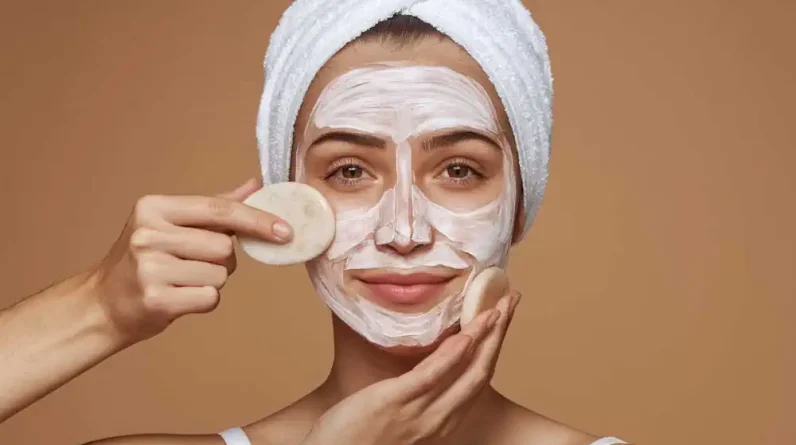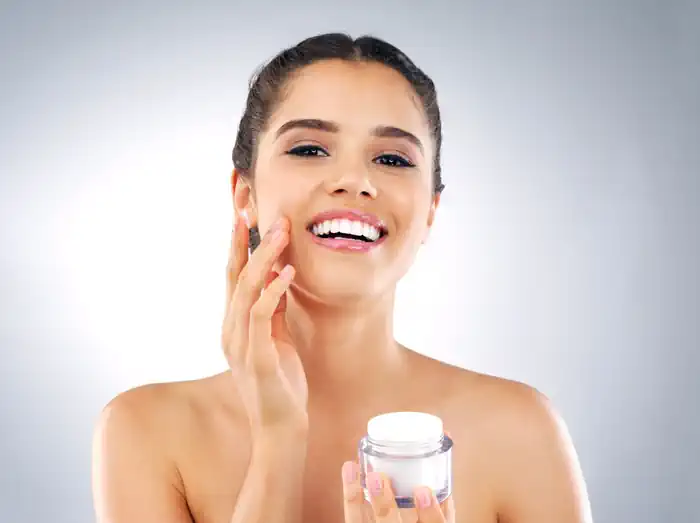
Skin care is something we all need to think about, but it’s not always easy to know where to start. It can be overwhelming trying to figure out how best to keep your skin looking fresh and healthy. Whether you’re just starting out with your skincare routine or you’re an old hand, there are a few basics that everyone should know. Let’s take a closer look at the skin care basics that will help keep your skin looking its best.
Your skin is the largest organ in your body and it needs some extra special attention. Taking good care of your skin will help give you a healthy glow and minimize potential problems later on. There are so many products available on the market, so it’s important to know what works for you and what doesn’t. A good place to start is by understanding what type of skin you have – dry, oily, sensitive etc. – as this will dictate which products are right for you.
Next, developing good habits when it comes to skincare is essential if you want long-term results. Cleansing regularly, moisturizing daily, using sun protection and exfoliating periodically are all key steps in keeping your skin looking its best over time. So don’t underestimate these simple yet effective techniques – they could be just what you need for healthier looking skin!
Types Of Skin
When it comes to skin care, the type of skin you have is the foundation for any routine. There are four main types of skin: dry, normal, combination, and oily. Each type requires different products and ingredients to keep it healthy.
Dry Skin
Dry skin is characterized by tightness and itchiness. It needs extra moisture, so look for products that include humectants like glycerin or hyaluronic acid. Natural oils like jojoba oil or avocado oil can also be helpful in locking in moisture.
Normal Skin
Normal skin typically does not have any issues with dryness or oiliness. Look for gentle cleansers and a light moisturizer with some SPF protection to keep your skin looking its best. Keep an eye out for products that contain antioxidants like vitamin C or green tea extract to help protect your skin from environmental damage.
Oily Skin
Oily skin produces too much sebum which can cause clogged pores and breakouts if not managed properly. Look for non-comedogenic cleansers and oil free moisturizers that won’t add extra oil to your face. If you need extra help managing shine, look for mattifying products with clay-based ingredients like kaolin or bentonite clay that can absorb excess excess sebum without over-drying your skin.
Combination Skin
Combination skin is a skin type characterized by an oily T-zone (forehead, nose, and chin) and dry or normal skin on the cheeks. People with combination skin should use products that are specifically tailored to their skin type, such as oil-free moisturizers, gel cleansers, and non-comedogenic makeup. It is also important to use products that are specifically designed to be used on combination skin, such as oil-free sunscreens and toners. Additionally, exfoliation is important for combination skin, as it helps to remove excess oil and dead skin cells.
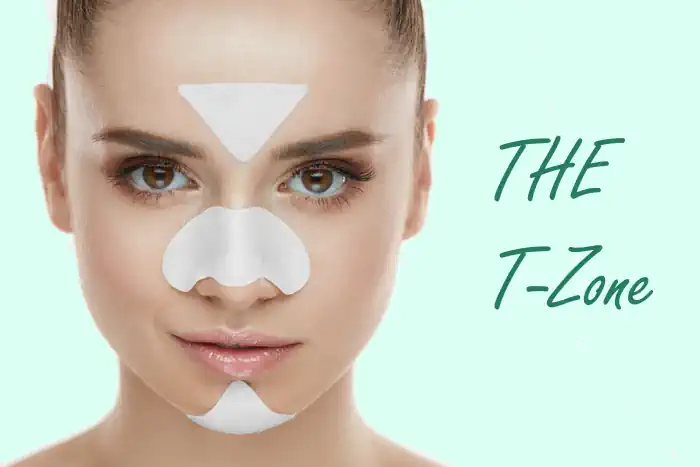
No matter what type of skin you have, it’s important to find a routine that works for you and stick with it! Properly caring for your skin will help keep it looking healthy and glowing over time.
Daily Morning Skin Care Routine
Once you know your skin type, it’s time to create a daily routine to help keep your skin looking its best. Creating a consistent skincare routine is essential for healthy-looking skin. Here are some tips for building the perfect routine.
Cleansing
First, start with a gentle cleanser and lukewarm water. Cleansing removes dirt and impurities from the surface of the skin and helps maintain its natural moisture barrier. Avoid using harsh soaps or scrubs as they can damage the delicate balance of your skin’s pH levels and strip away its natural oils. Use lukewarm water to cleanse your skin instead of hot water to avoid drying out your skin too much.
Cleansers are an important part of a healthy skin care routine as they help to remove dirt and makeup residue from your pores before exfoliating. Different cleansers are available for different skin types so it’s important to choose one that best suits your needs. For example, those with oily or acne-prone skin should look for a gentle cleanser that is non-comedogenic and free from pore-clogging ingredients. If you have dry or sensitive skin, opt for a moisturizing option with ingredients like hyaluronic acid or glycerin which will help to keep the skin nourished and hydrated.
When choosing a cleanser, it’s also important to consider the texture and scent as these can play an important role in how enjoyable the experience is. Watch for creamy formulas with added oils or extracts to give your skin extra hydration while still effectively removing impurities. And if you’re looking for something more luxurious, try a balm or oil cleanser which can be especially comforting during cold winter months!
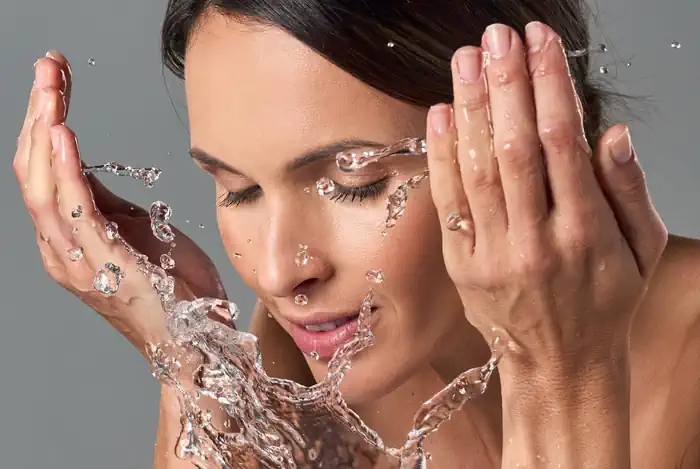
No matter what type of cleanser you choose, make sure to use lukewarm water when washing your face as hot water may strip away natural oils and lead to dehydration. Additionally, don’t forget to double cleanse in order to ensure all traces of dirt and makeup residue are removed from your pores.
Moisturizing
Next, follow up with an appropriate moisturizer that matches your skin type. Moisturizers help restore hydration, provide antioxidants, and keep skin supple and smooth. If you have dry or normal skin, look for oil-based moisturizers that provide intense hydration. If you have oily or acne-prone skin, opt for lighter formulas like gels or lotions that won’t clog pores.
Moisturizing helps to keep skin hydrated and prevents dryness, which can cause discomfort and premature aging.
The best way to ensure that your skin gets the moisture it needs is by using a moisturizer formulated for your skin type. If you have oily or acne-prone skin, look for an oil-free formula that won’t clog pores. For those with dry or sensitive skin, opt for a richer cream that will help retain moisture. Make sure to apply moisturizer immediately after cleansing and exfoliating as this will help lock in hydration and maximize the benefits.
It’s also important to consider environmental factors such as temperature and humidity when it comes to selecting a moisturizer. During cold winter months, opt for heavier creams to provide extra hydration while lighter lotions are better suited for warmer climates when the air is more humid. Additionally, don’t forget to apply lip balm throughout the day as lips tend to be more prone to drying out than other areas of the face.
By finding the right moisturizing products and adjusting them according to seasonal changes, you can easily maintain healthy and well-hydrated skin all year round!
Sun Protection
Finally, finish off with sunscreen every day—even if you stay indoors! Sunscreen helps protect against ultraviolet (UV) rays which can cause premature aging and sun damage like wrinkles and dark spots over time. Look for products labeled “broad spectrum” which will protect against both UVA and UVB rays; SPF 30 or higher is also recommended for optimal protection from the sun’s harmful rays.
Once you’ve established a daily skincare routine, it’s important to make sure you’re also protecting your skin from the sun. Sun exposure is one of the leading causes of premature aging and skin damage, so it’s essential to include sun protection in your skincare regimen.
The most effective way to protect your skin from UV rays is to wear sunscreen every day—yes, even if you stay indoors! Look for products labeled “broad spectrum” that will protect against both UVA and UVB rays, and apply a generous amount with SPF 30 or higher for optimal protection. Reapply as needed throughout the day if you plan on being outside for an extended period of time.
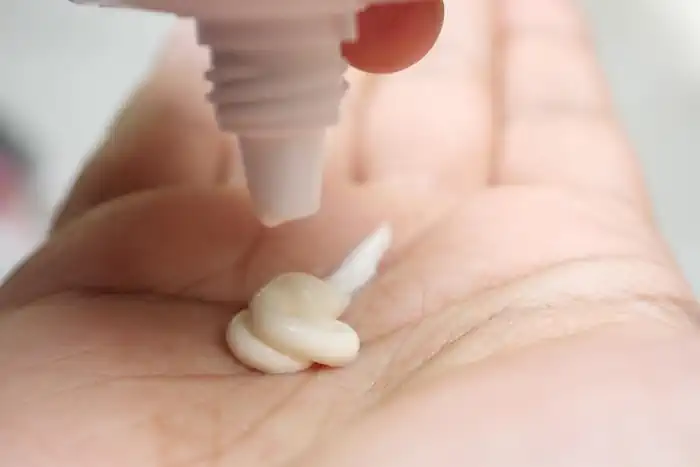
In addition to sunscreen, consider wearing protective clothing like hats and sunglasses when spending time outdoors. If possible, seek shade during the peak hours of 10am-4pm when the sun’s rays are strongest. Also keep in mind that some medications can increase skin sensitivity to sunlight, so be sure to check with your doctor if you have any concerns.
By following these steps, you can help ensure that your skin remains healthy and protected from harmful UV rays. With these tips in mind, you’ll be well on your way to creating a daily skincare routine that works just right for your individual needs!
Now that you’ve mastered the basics of your daily routine, it’s time to think about the products you use for exfoliation.
Exfoliation
In order to keep your skin looking and feeling its best, it’s important to exfoliate. Exfoliation is the process of removing dead skin cells that accumulate on the surface of the skin, which can leave it looking dull and congested. By regularly exfoliating your skin, you can help to reveal brighter, smoother complexion and reduce clogged pores.
The two main types of exfoliation are physical and chemical. Physical exfoliants include scrubs, sponges, or brushes that physically remove dead skin cells, while chemical exfoliants use acids such as alpha hydroxy acid (AHA) or beta hydroxy acid (BHA) to dissolve debris on the surface level. When used properly, both types of exfoliation can be beneficial for the skin but it’s important not to overdo it as this may cause irritation or sensitivity. For best results, limit yourself to one or two exfoliations per week, depending on your skin type.
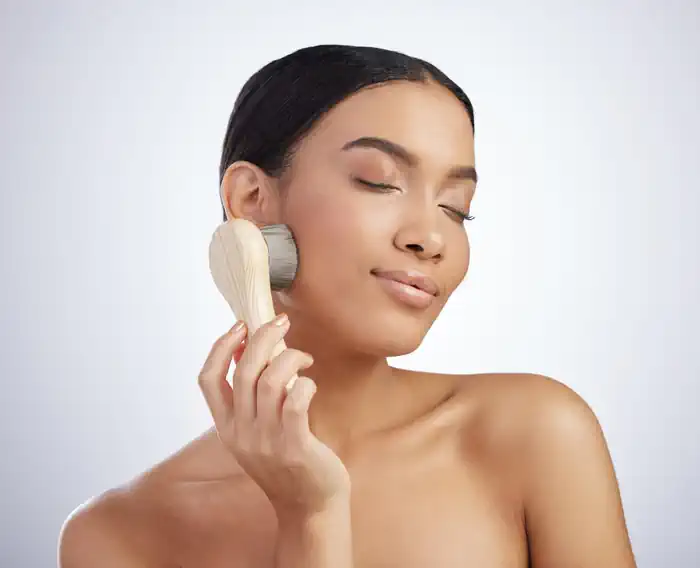
It’s also important to use an appropriate cleanser alongside your chosen form of exfoliation in order to properly remove dirt and makeup residue from the pores before exfoliating. Additionally, always remember to follow up with a moisturizer after exfoliating as this will help replenish hydration levels and lock in any other skincare products you’ve applied prior.
By taking the time for regular cleansing and proper exfoliation routine, you can ensure that your skin remains soft and healthy looking!
Healthy Habits
In addition to using the right skincare products, diet, nutrition, and sleep also play a major role in maintaining healthy skin.
Eating a well-rounded diet that’s rich in vitamins and minerals can help to keep your skin looking vibrant and youthful. Incorporating foods with essential fatty acids like salmon, avocados, nuts, and seeds can help to nourish the skin from within, while antioxidant-rich fruits and vegetables can protect against environmental damage. Additionally, staying hydrated by drinking plenty of water is key for keeping the skin well hydrated and supple.
It’s also important to note that certain foods can have an adverse effect on the skin. For example, eating too much sugar can contribute to inflammation which may cause breakouts or premature aging. Similarly, processed foods with added sugars or preservatives are best avoided as they don’t offer any real nutritional benefit. On the other hand, incorporating more whole foods like whole grains, legumes, and lean proteins into your diet is a great way to get all the necessary nutrients for healthy skin.
By making small changes such as swapping out processed snacks for healthier options like fresh fruit or vegetables, you can make a big difference in how your skin looks and feels. And if you want an extra boost of antioxidants or omega-3s, consider adding a supplement into your routine for extra nourishment!
Sleep
Getting deep, restful sleep is essential for skin care because it helps to reduce inflammation, which can lead to breakouts, wrinkles, and other skin problems. During sleep, the body repairs itself and produces new cells, which helps to keep skin looking fresh and healthy. Sleep also helps to reduce stress, which can impact the skin in many negative ways. Lastly, it helps to produce collagen, which is important for giving skin a youthful and healthy appearance.
With these tips in mind, you can easily find ways to incorporate healthy habits into your daily life so that you can enjoy glowing skin from head-to-toe!
Natural Remedies
In addition to considering diet and nutrition, there are many natural remedies that can help to keep the skin looking healthy and youthful. Many of these treatments use ingredients you may already have in your kitchen, such as honey, oatmeal, and lemon juice. Honey is a great natural moisturizer with antibacterial properties that can help to reduce inflammation and clear up acne. Oatmeal is also an excellent choice for reducing redness and irritation due to its anti-inflammatory properties. And lastly, lemon juice is packed with vitamin C which can help brighten dull skin tones.

These natural remedies are easy to make at home, making them a cost-effective way to improve the look and feel of your skin without breaking the bank. Plus, using natural ingredients like these is usually much gentler on the skin than harsh chemicals found in commercial products. However, it’s important to be aware that everyone’s skin is different and what works for one person may not work for another so it’s best to do a patch test before applying any new product or remedy to your face.
It’s also worth noting that while natural remedies can be beneficial for some people, they should never replace professional medical advice when it comes to treating serious skin issues like eczema or psoriasis. If you’re concerned about a particular issue, it’s always best to seek out advice from a dermatologist who can provide personalized guidance tailored specifically for you.
Professional Treatments
Professional treatments are another great option for those looking to improve the look and feel of their skin. These treatments can be done in a spa or at home with products purchased from a beauty store, so there’s something for everyone regardless of budget.
Facials
Facials are one of the most popular professional treatments, as they are designed to deeply cleanse and nourish the skin. Facials often use masks, exfoliating scrubs, and steam to draw out impurities and leave the skin feeling refreshed.

Chemical Peels
Chemical peels are also an option for those looking for more dramatic results. These treatments involve the application of a chemical solution that helps to remove dead skin cells and reveal brighter, smoother skin underneath. Chemical peels can help minimize wrinkles and discoloration while also improving overall texture. However, it’s important to keep in mind that these treatments should always be done by a trained professional as they can cause irritation if not applied correctly.
Laser Treatments
Lastly, laser treatments have become increasingly popular in recent years due to their ability to treat issues like acne scars and hyperpigmentation with minimal downtime. Laser treatments use beams of light energy to target damaged areas below the surface without damaging healthy tissue, making them an effective way to reduce signs of aging or other blemishes on the face or body. While laser treatments can provide impressive results, it’s important to note that multiple sessions may be necessary in order to achieve desired outcomes.
No matter what treatment you choose, it’s essential to remember that taking good care of your skin is essential for long-term success. Taking the time to incorporate healthy habits like drinking plenty of water and protecting your skin from sun damage will help ensure that any professional treatment you receive has lasting benefits!
Habits To Avoid
Now that we’ve discussed professional treatments, it’s important to consider the habits that can have a negative impact on your skin. While there’s no one-size-fits-all approach, there are some practices that should generally be avoided when it comes to skin care.
Smoking
First and foremost, smoking is bad for your health in general, but it can be especially damaging to your skin. Not only does smoking cause premature wrinkles and discoloration, but it also decreases blood flow to the skin, leading to a sallow complexion. Additionally, cigarettes contain thousands of toxic chemicals that can damage collagen and elastin fibers in the skin, making them less able to recover from injury or damage. If you do smoke, quitting is essential if you want healthy looking skin.
Harsh Products or Treatment
It’s also important to avoid overusing products like exfoliants or cleansers as these can strip away natural oils and leave skin feeling dry and irritated. Additionally, many people make the mistake of scrubbing their face too vigorously when washing which can lead to redness or inflammation. Instead of harshly rubbing your face with a washcloth or brush, opt for gentle circular motions with your fingertips as this will help keep your skin clean without causing any additional damage.

Overly Hot Water
Finally, taking hot showers may feel nice in the moment but they can be extremely drying for the skin due to the high water temperature. Hot water strips away natural oils from the surface of the skin faster than cold water would so try switching up your shower routine by using cooler temperatures instead! Doing so will help preserve moisture levels while still allowing you to get clean.
By making small changes like these and avoiding bad habits, you can ensure that your skin looks its best over time!
Conclusion
The importance of a good skin care routine can’t be overstated. Taking the time to learn the basics and finding the right products for your skin type is essential. With a daily routine, plus regular exfoliation, natural remedies, professional treatments, and healthy habits, you can help keep your skin looking its best.
Regular exfoliation helps get rid of dead skin cells and allows new ones to surface. You can also use natural remedies like tea tree oil or apple cider vinegar to reduce acne flare-ups. Professional treatments like chemical peels or laser resurfacing are great for more severe problems, but should only be done by experienced professionals.
Finally, developing healthy habits such as wearing sunscreen every day and avoiding cigarettes will help protect your skin from further damage over time. Taking these steps can help you maintain a beautiful complexion in both the short-term and long-term!
Taking these steps will ensure you get the care needed for healthy skin!


